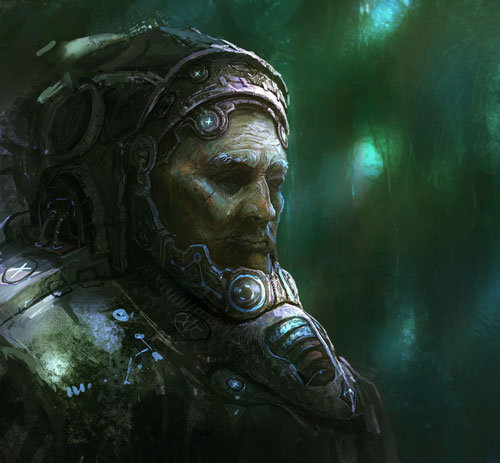Old Soldiers
 Veterans Day, aka Armistice Day, has a particular resonance for me, since it’s also my birthday. It’s a sobering thing to discover, at a very young age, that you were born on a day that commemorates the ending of a war—and not just any war, but arguably the most horrendous war in human history. I found that sense of perspective helpful in orienting myself in both history and in my relative significance to the larger universe.
Veterans Day, aka Armistice Day, has a particular resonance for me, since it’s also my birthday. It’s a sobering thing to discover, at a very young age, that you were born on a day that commemorates the ending of a war—and not just any war, but arguably the most horrendous war in human history. I found that sense of perspective helpful in orienting myself in both history and in my relative significance to the larger universe.
Getting a day off from school didn’t hurt either.
We also take the opportunity to remember and honor the sacrifices of those who have served in our nation’s armed forces throughout its history to the present day. Living in a prosperous country whose shores have not been touched by war in a very long time, it’s easy to forget those who stand guard at lonely outposts, far from friends and family, putting their lives at risk daily to keep our land free and secure or to help others to do the same. It’s easy to think of war as something that happens to somebody else—out of sight, out of mind.
It’s good to set a day aside to think about that a while.
Becky recently discussed war in the context of fantasy fiction, but I prefer science fiction in this case because it seems to grapple more directly with the topic of war itself. It not only speculates about how war might evolve but almost invariably speaks to the impact of war on the individual, and on how the lot of the soldier doesn’t really change very much, no matter how exotic the weapons, or the means of transportation, or the battlefield might become. It also talks about what happens in war’s aftermath, and how warfare leaves an indelible imprint on soldiers that can make them misfits in the same society that sent them off to fight.
The idea of “duty” comes up a lot, the sense that we have a responsibility to take action when evil arises, that acting in defense not only of one’s home and hearth, but often in aid of strangers in peril next door, halfway around the world, or perhaps even across the galaxy, is somehow essential for those who would call themselves human beings…or children of God. That sense of duty is something a military person learns early in their career, and it begins with a commitment to the people beside you, fighting on your left and right. If you take that training to heart, it never leaves you, even when you’re out of uniform and spending your golden years dozing in front of the television in a rocking chair. Ask any veteran.
Here’s an illustration from one of my favorite writers of military-flavored science fiction, Keith Laumer. It’s a tale of two forgotten veterans who never forgot their duty: “The Last Command.” Read the preface by David Drake and the afterword by Eric Flint, too.








































Great thoughts, Fred!
My favorite war-centered science-fiction is Battlestar Galactica. I felt like the show did a good job of portraying the huge responsibility of military command, and the hard choices soldiers have to make.
I also enjoy David Weber’s Honor Harrington series (the first two, On Basilisk Station and The Honor of the Queen, are free for e-reading on the Baen Books website), and Joe Haldeman’s classic, The Forever War.
I loved Battlestar Galactica, Bethany, Ma’am. I thought it showed the strange dichotomy of folks who are sometimes do, indeed one may say often inevitably do, very sinful (and unhealthy) things on the one hand, yet will act absolutely pious, on the other hand. I can testify the above is true from my own (admittedly anecdotal, though statistics do support this) observations of others, not to mention my own behavior. I’ve heard some people call the characters hypocrites. Indeed, they are hypocrites. That’s the point, you deal with war in all sorts of way, and you vacillate in your sinful nature between evil and repentance.
Sir, I really liked the concept of the Honor Harrington series, especially since in what I’ve read (just the first two books so far) they make clear the reality that Star Trek refused to admit (though the above noted BSG admitted it from the start). That reality being that often the most capable and certainly most experienced in any military are the NCO’s. My only problem that has kept me from going on farther onto book three was that at the end of the second book, injuries aside, Harrington is veering dangerously close to Canon Sue territory. I don’t want my experience with the great characters to be ruined by seeing her become full-on Canon Sue.
Well, a Canon Sue is usually a fan-fiction pitfall in which the writer converts an established character from the source material into a self-surrogate, though it’s seen occasionally in professional fiction. Still, I don’t think Mr. Weber is writing Honor Harrington as a female fantasy version of himself.
If you mean she’s beginning to seem a little too perfect with respect to the other characters, I suppose that’s possible, but she’s the heroine, after all. I’ll have to go back and look at the stories again, but I think Honor makes her share of missteps along the way, even as she wins out in the end.
I think any series will have the risk of degenerating, Timothy. There’s not much to do except ride with it until the worrying trends you see are proven or dispelled. That makes me hesitant to get involved with the big, 7+ volume franchises though.
Yes, Sir. That “a little too perfect” is exactly what I mean. I saw before someone differentiate a character that is a “Canon Sue (or Stu for the male versions) as different from the “Mary Sue/Marty Stu” as being a story that is part of the official storyline or canon of the work, but has too many “Sue-ish” traits. Sorry for the confusion, Sir. I do like the story, but I am antsy about seeing the quality go down. That and the second book was a rehash in some ways of the first, plot-wise. I want some variety.
Didn’t write my whole sentence in my initial comment. I mean my personal experience and observations of others from my time in Iraq in the Army.
I wasn’t quite fair to Star Trek. Most of the series avoided mentioning Enlisted/NCO’s, or downplayed them, except for DS9, which did a terrific time with them via Chief O’Brien, Rom, etc.
Timothy,
I know what you mean. I find a series that runs longer than two or three installments begins to wear out its welcome with me. There are exceptions, but I’m not usually one of those desperately wishing an author “would write just one more story about XYZ.”
It’s interesting that military-flavored science fiction television and movies do seem to focus more on the officer corps (novels do a better job), while historical dramas pay more attention to the enlisted.
As the NCOs are wont to say, “You don’t have to call me ‘sir.’ I work for a living.” 🙂
And thank you for your service!
Fred